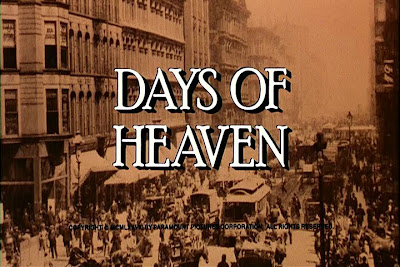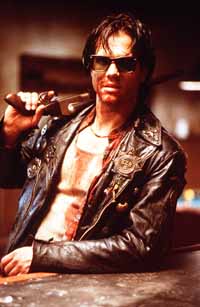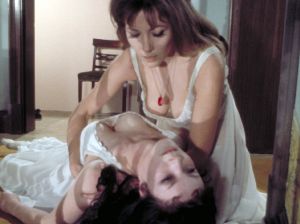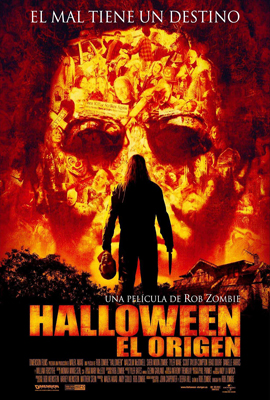
A few weekends back, my wife and I decided to catch up on some of the movies that, in the months before and after the birth of our daughter, weren't worth the trip to the multiplex. After a quick trip to the local Redbox, we sat through three of the worst films of the year. Oddly enough, they were mostly bad in the same way - all three were self-important, toothless, and derivative of better films from the 1990s. As the sidebar to your right indicates, 2007 is shaping up to be a memorable year, with many very good films thus far (including a few masterpieces), and several more promising titles coming before the new year. I look forward to discussing them soon; but first, the schmutz.
Easily the worst of the bunch (and the only one we were certain would suck) is The Number 23, Joel Schumacher's feeble attempt to be David Lynch. Screeenwriter Fernley Phillips' steals shamelessly from Lynch's infinitely superior Lost Highway - not only do both movies feature a murderous saxophonist, they both revolve around actors portraying characters with seemingly dual identities. Any Lynchian ambiguity is rendered thuddingly literal with the device of the titular novel, given to dogcatcher Walter Sparrow (Jim Carrey) by his wife Agatha (Virginia Madsen, wasted yet again). Sparrow is quickly wrapped up in the story of a detective (also Carrey) investigating the mystery of a number that has driven people mad with its synchronicities - as he gets deeper into the book, it appears that the story is meant to tell him something about his own life. None of this makes any sense, of course - Sparrow's search for the truth involves his family, his friends and Bud Cort before arriving at a thuddingly obvious conclusion.
Phillips and Schumacher emulate the Lynchian weirdness while abandoning the ambiguity and layered meanings that make Lynch's works so rich and emotionally cohesive even as his narratives become increasingly less representational. Strung together by its useless numerological conceit (π this is not), it's tabloid filmmaking that could only be enjoyed by audiences who prefer bullshit speculation to real inquiry into the nature of things (this is perhaps the line that divides good mysteries from lousy ones). Worse still is the idiotic, morally repugnant ending, one that cynically discards the questons it has attempted to raise in favor of a pat resoultion for its protagonist that defies all understanding of human nature. The Number 23 is so bad that it's alien, confirming that Joel Schumacher's films have become must-sees in that they just keep getting worse (he's become Uwe Boll with better lighting). And its biggest mystery is how Jim Carrey, a star who, with the right director, can do great, multilayered work, could have possibly thought this movie was the right departure from his comedic work. Did it even occur to him that he's playing a pet detective again? Eternal sunshine of the spotless mind, indeed.
Not nearly as awful - just mediocre and boring - is Vacancy, a siege thriller that would have fit comfortably am ong the early-90's cycle of Silence of the Lambs ripoffs. The premise is faithful to the trailer, as a young married couple (Luke Wilson and Kate Beckinsale) recovering from the loss of a child check into a seedy roadside motel where they soon find themselves the prey of the A/V-savvy manager (Frank Whaley) and a gang of knife-wielding maniacs. The premise is enough for an effective, sophisticated thriller built around very prescient fears (surveillance, torture) or a stylish, unapologetically grimy slasher in the vein of High Tension; unfortunately, it's neither. While the trailer promised suspense, we are only given a series of blunt, obvious shocks as Vacancy becomes a hilarious example of Danny DeVito's aspiring writer's plot summary in Throw Momma From the Train ("one guy kills the other guy"). Not so bad if this film were a direct-to-video quickie, but director Nimrod Attal gives the film a horrible air of self-importance - even the credits are pretentious. With no character development to latch onto, we can only focus on the film's condescending attitude towards rural life (even I Spit on Your Grave was more honest) and its unlikable yuppie protagonists. Beckisale looks bored and Wilson looks uncomfortable; only Frank Whaley plays the material at the right pitch, acknowledging the film as the high-toned junk that it is.
ong the early-90's cycle of Silence of the Lambs ripoffs. The premise is faithful to the trailer, as a young married couple (Luke Wilson and Kate Beckinsale) recovering from the loss of a child check into a seedy roadside motel where they soon find themselves the prey of the A/V-savvy manager (Frank Whaley) and a gang of knife-wielding maniacs. The premise is enough for an effective, sophisticated thriller built around very prescient fears (surveillance, torture) or a stylish, unapologetically grimy slasher in the vein of High Tension; unfortunately, it's neither. While the trailer promised suspense, we are only given a series of blunt, obvious shocks as Vacancy becomes a hilarious example of Danny DeVito's aspiring writer's plot summary in Throw Momma From the Train ("one guy kills the other guy"). Not so bad if this film were a direct-to-video quickie, but director Nimrod Attal gives the film a horrible air of self-importance - even the credits are pretentious. With no character development to latch onto, we can only focus on the film's condescending attitude towards rural life (even I Spit on Your Grave was more honest) and its unlikable yuppie protagonists. Beckisale looks bored and Wilson looks uncomfortable; only Frank Whaley plays the material at the right pitch, acknowledging the film as the high-toned junk that it is.
Neither The Number 23 nor Vacancy made much of a dent at the box office; Transformers, on the other hand, is one of the highest-grossing movies of the year, proof that one can never underestimate the unstoppable combination of nostalgia and hipster detachment. The s udden acceptance of Michael Bay now that he's bracketing his misanthropic cock cheese in so-ironic quotation marks (one extra: "This is way cooler than Armageddon!") is definitive proof of my generation's soul-killing apathy. The script is a straight ripoff of the better and funnier Small Soldiers, minus the shrewd social commentary, and I spent most of the movie imagining how kickass a Joe Dante Transformers would have been. Young Sam Witwicky (Shia LeBouf, the biggest question mark of Indy 4) buys a car that is actually a robot from space, and the good robots fight bad robots while a lot of other stuff happens and Witwicky tries to titfuck a witless, dead-eyed trout (Megan Fox). It doesn't matter. It's hateful, materialistic crap, keeping the sales-pitch cynicism of the original cartoon minus the endearing kitsch. True, the writers try to bracket everything in wink-wink sarcasm, making this crap that knows it is crap. The effects are flawless but pointless, as Transformers is never remotely fun . Try to defend it as meant for kids and I'll ask you to recall the indefensible dreck we liked as kids; try to defend it as shut-your-brain-off fodder and I'll ask why I should shut my brain off; defend it at all and I'll remind you of the scene where a robot pisses on Barton Fink. The Number 23 and Vacancy are bad, but Transformers is actually dangerous, its massive success paving the way for another decade of Bay's Teutonic brand of anti-art. The biggest question, then, is who Michael Bay hates more - us or himself.
udden acceptance of Michael Bay now that he's bracketing his misanthropic cock cheese in so-ironic quotation marks (one extra: "This is way cooler than Armageddon!") is definitive proof of my generation's soul-killing apathy. The script is a straight ripoff of the better and funnier Small Soldiers, minus the shrewd social commentary, and I spent most of the movie imagining how kickass a Joe Dante Transformers would have been. Young Sam Witwicky (Shia LeBouf, the biggest question mark of Indy 4) buys a car that is actually a robot from space, and the good robots fight bad robots while a lot of other stuff happens and Witwicky tries to titfuck a witless, dead-eyed trout (Megan Fox). It doesn't matter. It's hateful, materialistic crap, keeping the sales-pitch cynicism of the original cartoon minus the endearing kitsch. True, the writers try to bracket everything in wink-wink sarcasm, making this crap that knows it is crap. The effects are flawless but pointless, as Transformers is never remotely fun . Try to defend it as meant for kids and I'll ask you to recall the indefensible dreck we liked as kids; try to defend it as shut-your-brain-off fodder and I'll ask why I should shut my brain off; defend it at all and I'll remind you of the scene where a robot pisses on Barton Fink. The Number 23 and Vacancy are bad, but Transformers is actually dangerous, its massive success paving the way for another decade of Bay's Teutonic brand of anti-art. The biggest question, then, is who Michael Bay hates more - us or himself.
 ong the early-90's cycle of Silence of the Lambs ripoffs. The premise is faithful to the trailer, as a young married couple (Luke Wilson and Kate Beckinsale) recovering from the loss of a child check into a seedy roadside motel where they soon find themselves the prey of the A/V-savvy manager (Frank Whaley) and a gang of knife-wielding maniacs. The premise is enough for an effective, sophisticated thriller built around very prescient fears (surveillance, torture) or a stylish, unapologetically grimy slasher in the vein of High Tension; unfortunately, it's neither. While the trailer promised suspense, we are only given a series of blunt, obvious shocks as Vacancy becomes a hilarious example of Danny DeVito's aspiring writer's plot summary in Throw Momma From the Train ("one guy kills the other guy"). Not so bad if this film were a direct-to-video quickie, but director Nimrod Attal gives the film a horrible air of self-importance - even the credits are pretentious. With no character development to latch onto, we can only focus on the film's condescending attitude towards rural life (even I Spit on Your Grave was more honest) and its unlikable yuppie protagonists. Beckisale looks bored and Wilson looks uncomfortable; only Frank Whaley plays the material at the right pitch, acknowledging the film as the high-toned junk that it is.
ong the early-90's cycle of Silence of the Lambs ripoffs. The premise is faithful to the trailer, as a young married couple (Luke Wilson and Kate Beckinsale) recovering from the loss of a child check into a seedy roadside motel where they soon find themselves the prey of the A/V-savvy manager (Frank Whaley) and a gang of knife-wielding maniacs. The premise is enough for an effective, sophisticated thriller built around very prescient fears (surveillance, torture) or a stylish, unapologetically grimy slasher in the vein of High Tension; unfortunately, it's neither. While the trailer promised suspense, we are only given a series of blunt, obvious shocks as Vacancy becomes a hilarious example of Danny DeVito's aspiring writer's plot summary in Throw Momma From the Train ("one guy kills the other guy"). Not so bad if this film were a direct-to-video quickie, but director Nimrod Attal gives the film a horrible air of self-importance - even the credits are pretentious. With no character development to latch onto, we can only focus on the film's condescending attitude towards rural life (even I Spit on Your Grave was more honest) and its unlikable yuppie protagonists. Beckisale looks bored and Wilson looks uncomfortable; only Frank Whaley plays the material at the right pitch, acknowledging the film as the high-toned junk that it is.Neither The Number 23 nor Vacancy made much of a dent at the box office; Transformers, on the other hand, is one of the highest-grossing movies of the year, proof that one can never underestimate the unstoppable combination of nostalgia and hipster detachment. The s
 udden acceptance of Michael Bay now that he's bracketing his misanthropic cock cheese in so-ironic quotation marks (one extra: "This is way cooler than Armageddon!") is definitive proof of my generation's soul-killing apathy. The script is a straight ripoff of the better and funnier Small Soldiers, minus the shrewd social commentary, and I spent most of the movie imagining how kickass a Joe Dante Transformers would have been. Young Sam Witwicky (Shia LeBouf, the biggest question mark of Indy 4) buys a car that is actually a robot from space, and the good robots fight bad robots while a lot of other stuff happens and Witwicky tries to titfuck a witless, dead-eyed trout (Megan Fox). It doesn't matter. It's hateful, materialistic crap, keeping the sales-pitch cynicism of the original cartoon minus the endearing kitsch. True, the writers try to bracket everything in wink-wink sarcasm, making this crap that knows it is crap. The effects are flawless but pointless, as Transformers is never remotely fun . Try to defend it as meant for kids and I'll ask you to recall the indefensible dreck we liked as kids; try to defend it as shut-your-brain-off fodder and I'll ask why I should shut my brain off; defend it at all and I'll remind you of the scene where a robot pisses on Barton Fink. The Number 23 and Vacancy are bad, but Transformers is actually dangerous, its massive success paving the way for another decade of Bay's Teutonic brand of anti-art. The biggest question, then, is who Michael Bay hates more - us or himself.
udden acceptance of Michael Bay now that he's bracketing his misanthropic cock cheese in so-ironic quotation marks (one extra: "This is way cooler than Armageddon!") is definitive proof of my generation's soul-killing apathy. The script is a straight ripoff of the better and funnier Small Soldiers, minus the shrewd social commentary, and I spent most of the movie imagining how kickass a Joe Dante Transformers would have been. Young Sam Witwicky (Shia LeBouf, the biggest question mark of Indy 4) buys a car that is actually a robot from space, and the good robots fight bad robots while a lot of other stuff happens and Witwicky tries to titfuck a witless, dead-eyed trout (Megan Fox). It doesn't matter. It's hateful, materialistic crap, keeping the sales-pitch cynicism of the original cartoon minus the endearing kitsch. True, the writers try to bracket everything in wink-wink sarcasm, making this crap that knows it is crap. The effects are flawless but pointless, as Transformers is never remotely fun . Try to defend it as meant for kids and I'll ask you to recall the indefensible dreck we liked as kids; try to defend it as shut-your-brain-off fodder and I'll ask why I should shut my brain off; defend it at all and I'll remind you of the scene where a robot pisses on Barton Fink. The Number 23 and Vacancy are bad, but Transformers is actually dangerous, its massive success paving the way for another decade of Bay's Teutonic brand of anti-art. The biggest question, then, is who Michael Bay hates more - us or himself.




































